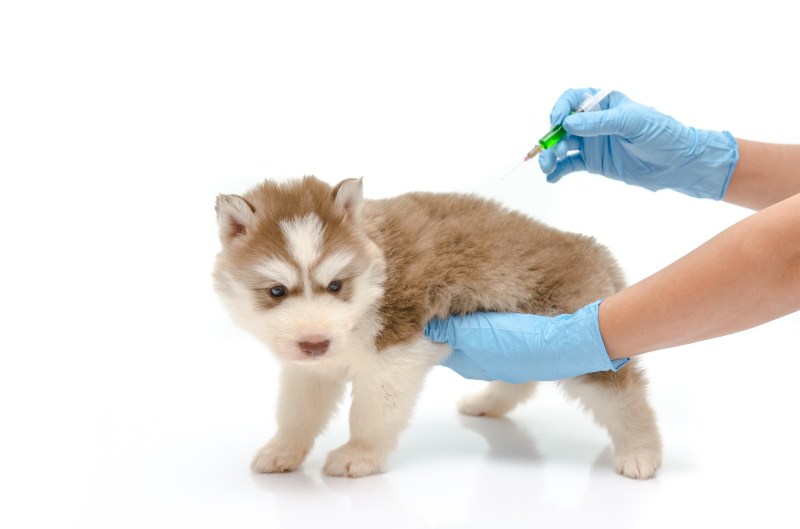Where Can I Get Vaccinations For My Dog – What’s better than a puppy? That’s right, your dog is very own! So what do you need to know before becoming a pet parent?
Welcome to the world, little boy! By now, your dog is getting bigger and bigger, so there are a lot of things to prepare.
Where Can I Get Vaccinations For My Dog

Your puppy is ready to come home and turn your world upside down. It’s time to put your preparations into action, and remember to get them all.
Many Dog Owners Have ‘canine Vaccine Hesitancy,’ About The Rabies Shot
You are entering a period of great growth, lots of learning and new experiences. Bring a game history to the big world.
Your fur baby is approaching adulthood. Do you see them growing up? Sigh…they grow up so fast don’t they?
Your puppy is a year old and may not be so small anymore. Be sure to schedule your first annual exam.
Your dog is now a member of the family. Enjoy who they have become at this particular stage and the bond they share now.
Dog Vaccinations Cost: What You’ll Pay
Your dog is now grown. They understand that they have a place in your home and the wider world.
Like most seniors, senior dogs have additional needs. Learn to take care of your best friend and support their health as they go.
Now that your puppy is settled into your home, how can you make sure your new puppy is best protected against preventable infections? Fortunately, today we have effective vaccines that protect puppies from these dangerous infections.

Here are some simple guidelines to help give your puppy the best possible chance of protection in adulthood. Vaccination guidelines vary between animal shelters and regions in Australia. The protocol may vary depending on the specific brand of vaccine available from your veterinarian. Below is the method I use in practice.
How Much Do Dog Vaccinations Cost? (and How To Pay For Them)
The first vaccinations for dogs consist of the 3-in-1 C3 vaccine, which covers the following life-threatening diseases:
Most dogs sold in New Zealand have had their first vaccinations before coming home, but it is important to have a vaccination certificate to prove this.
Usually, a puppy’s second vaccination is given 4 weeks after the 1st vaccination with you. As you can see from the list above, the 2nd shot contains a 2nd dose of the C3 vaccine and may also include a shot against canine tracheitis, sometimes called kennel cough or whooping cough. Whooping cough itself consists of a viral component (Parainfluenza) and a bacterial component (Bordetella). This injection can be given as an intranasal dose (as an injection in the nose), orally (as a drop in the mouth), or by injection (can be added to the C3 injection and given as a single injection into the skin).
The last vaccination of the puppy should be given at least at 16 weeks of age, because at this age the maternal antibodies received from his mother during breastfeeding accumulate in your puppy’s blood and interfere with the vaccination. jobs
Canine Spectra 5 Dog Vaccine, 25 Dose
Every time your dog is vaccinated, your vet will perform a clinical exam that will ask you questions about your dog’s overall health. Learn more about dog food here.
After your puppy’s initial vaccinations have been completed, your vet will recommend a booster vaccination approximately 12 months after your puppy’s last vaccination. Annual examinations are then recommended and recommendations for future vaccinations will be discussed with your specialist.
Puppy parents have probably heard of leptospirosis, a serious bacterial infection that causes liver and kidney disease that can affect both pets and people in parts of Australia.

Infection depends on the species, but dogs can become infected from an environment contaminated with rat urine, from biting an infected rat, eating food, or ingesting the urine of infected animals (eg, dairy farms, pig farms). The disease is more common during heavy rainfall and in urban areas where there are many rats.
Puppy Vaccinations: Canine Parainfluenza Virus
. Be sure to talk to your local health care provider about the risk of leptospirosis to see if this is a problem in your area.
1. Pollock RV, Carmichael LE Maternal immunity against canine parvovirus infection. transmission, reduction and handling of needles. J Am Vet Med Assoc 1982; 180 (1). 37-42.
2. Day MJ, Horzinek MC, Schultz RD et al. WSAVA guidelines for vaccination of dogs and cats. J Small Anim Pract 2016;57:E1–45. As a veterinarian, I cannot stress enough the importance of regular, preventative veterinary care for dogs and puppies, including maintaining a vaccination schedule at every stage of life. Keeping your pet up-to-date on necessary vaccinations from adulthood to maturity is important for their long-term health and longevity. Key Activities: Dogs need essential and non-essential vaccinations for common lifestyle-based diseases that start and continue as puppies. Scheduled vaccinations are important to prevent serious health problems throughout your dog’s life. Most vaccine side effects are mild, but it’s important to watch for severe reactions and notify your doctor. How Dog Vaccines Work Dog vaccines inject small, harmless particles of viral or bacterial antigens into your pet’s body. This causes their immune system to recognize and remember the threat. If your dog is later affected by the disease, his immune system will quickly fight off the infection. Common dog vaccinations There are two types of dog vaccines: core vaccines and non-core vaccines (such as lifestyle vaccines). Core Vaccinations Core vaccines are universally recommended and considered necessary for all dogs and puppies. This is due to the severity of the disease they are protecting against. Here is a list of basic vaccinations for dogs: Canine distemper vaccine (CDV) This basic vaccine protects against a highly contagious and potentially fatal distemper virus. CAV-1 and CAV-2 adenovirus vaccines (CAV-1 and CAV-2). Parainfluenza vaccine This vaccine protects against viruses that cause serious infections of the bronchi and lungs. Parvovirus vaccine This vaccine for dogs protects against the highly contagious parvovirus, which can cause life-threatening gastrointestinal disease. Rabies vaccination This will prevent your dog from contracting rabies, a highly contagious disease that can be fatal to humans. Non-core vaccines Non-core vaccines (also called lifestyle vaccines) are recommended to provide additional protection based on specific risk factors such as geographic location, health status and lifestyle. Lifestyle vaccination for dogs. Leptospirosis vaccine This vaccine protects against leptospirosis, a bacterial infection that can cause kidney and liver failure, bleeding and, in severe cases, breathing problems. Leptospirosis can be transmitted from dogs to humans. Generally recommended for dogs that spend time in the countryside, forests or access to rivers and streams. The Bordetella vaccine protects against distemper and is often recommended if your dog visits a dog park or spends time in a daycare or boarding facility. The canine Lyme vaccine prevents the transmission of a bacteria known as Borrelia Burgdorferi to the tick. Canine Influenza Vaccine (H3N8 and H3N2) Protects your puppy or dog against contagious canine influenza. Viper Toxoid Any puppy or dog over four months of age that is exposed to snakes while outdoors should receive this vaccine. Dog and Puppy Vaccination Program Our licensed veterinary team has helped us develop a dog and puppy vaccination program. Now pet parents will have a better idea of when to schedule vaccinations based on their dog’s age. Puppy Vaccination Schedule Puppies are vaccinated every 2-4 weeks until 16 weeks of age to protect them and boost their immunity as the mother’s antibodies decline. Continue reading. What happens at your first puppy visit? Extending vaccination up to 20 weeks provides protection in high-risk areas. This rule is important to protect them from early diseases and lay the foundation for a healthy life. Primary vaccines for age Non-primary vaccines 6-8 weeks DHPP* Adenovirus Parvovirus Parainfluenza Bordetella 10-12 weeks DHPP Distemper Adenovirus Parvovirus Parainfluenza Bordetella Leptospirosis Lyme Canine influenza virus Rattlesnake *DHPP Also called: protects against five types of viruses: distemper, adenovirus (canine hepatitis), parainfluenza and parvovirus. Adult dog vaccination schedule The adult dog vaccination schedule varies depending on the type of vaccine, the dog’s health and local regulations, as well as the primary stimulus for the vaccine. It helps against major diseases in old age. If necessary, non-primary vaccinations are added, depending on the dog’s lifestyle, location and risk of certain diseases. Core vaccines for age Non-core vaccines 12-16 months DHPP Distemper Adenovirus Parvovirus Parainfluenza Rabies Bordetella Leptospirosis Lyme Influenza Canine

